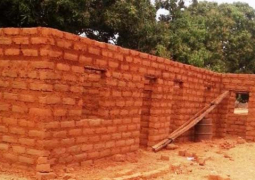Bala Saho, Mangroves Publishers, 2011
This is a new book by Bala Saho, Director General of the NCAC, and a noted writer focusing on one of The Gambia's most respected clerics, the venerable Sheikh Mass Kah born in 1827 and died in 1936. He is the founder of many cleric villages such as Medina Sering Mass Kah in Niumi.
This book is a formidable addition to Gambian historiography. It touches on an area of Gambian history on which nothing much has been written about yet, namely, Islam, Islamic personhood and influences in The Gambia.
Sheikh Mass Kah was born in Ngui Mbayen in the Wollof state of Kayoor in present day
His attitude towards the colonial powers was total avoidance. Thus whenever the French or British authorities came close to his establishment, he would relocate to a new place. This is why he had lived in Karang, Amdalaye (border towns of
The school he built at the village attracted students from everywhere. The school grew so big that it soon attracted the attention of the nosy Colonial Traveling Commissioner of North Bank Province. In his report for 1923 he noted 'there are a number of schools at which Arabic is taught, chiefly that of Mass Kah… some of the teachers are highly educated men...' Another way he won hearts and followers was by way of miracles. Today, there are numerous tales and poems recounting his miracles and super natural powers. These stories of miracle power confirm him among his followers as a saint. Stories abound when Mass Kah’s prayers would save debtors under arrest in
Yet, the disciples had to give some thing in return: farm work and free labour. One could argue that the teachings of Islam provided clerics with the ideological base upon which they could exploit the labour of their disciples, since in Islam it appears that there is a link between work for elders and clerics and blessings. Students would join a dara not merely to learn the Quran but also to work the fields for their teacher. Sheikh Mass Kah’s disciples worked his farms to sustain themselves, his family and hangers on. This was their duty to him to requite his protection, support and blessings. Bala employs primary, secondary sources including field work to gather his data giving the books an authorative hue.
I strongly recommend this book to students of Gambian history especially those interested in the issue of Islamic influences in the making of The Gambia.
Available in Timbooktoo.
Read Other Articles In Article (Archive)


